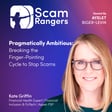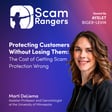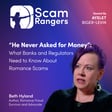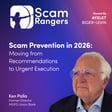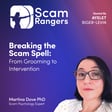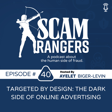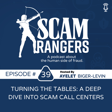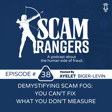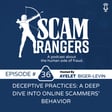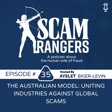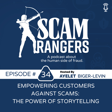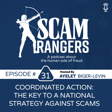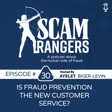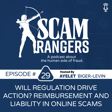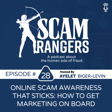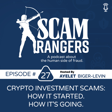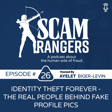
Getting in Front of the Scam: How to Build Trust With Your Customers, A conversation with Hailey Windham, a Credit Union Fraud Fighter
In this episode, we are joined by Hailed Windham, a leading voice in the credit union community, who shares her expertise on the collaborative efforts to fight fraud. Hailed tells us about her involvement in multiple impactful initiatives, such as promoting awareness programs through the #cufightfraud campaign she initiated on social media and co-leading the bank and FI subgroup in Operation Shamrock. She also discusses her active role in Mission Omega, highlighting the importance of coordinated efforts in fraud prevention.
Hailed further explains how she is driving the fight against #pigbutechering scams with the Crypto Coalition in South Carolina, aiming to drive regulatory changes and improve enforcement against cryptocurrency investment scams.
Tune in to learn about the innovative strategies credit unions are employing to safeguard their members and stay ahead of emerging threats in the financial sector.
Hailey Windham on LinkedIn: https://www.linkedin.com/in/hailey-windham/
Banking on Fraudology Podcast: https://pod.link/1744207174
This podcast is hosted by Ayelet Biger-Levin who spent the last 15 years building technology to help financial institutions authenticate their customers and identify fraud. She believes that when it comes to scams, the story starts well before the transaction. She has created this podcast to talk about the human side of scams, and to learn from people who have decided to dedicate their lives to speaking up on behalf of scam victims and who take action to solve this problem.
Be sure to follow her on LinkedIn and reach out to learn about her additional activities in this space. https://www.linkedin.com/in/ayelet-biger-levin/
ScamRanger: https://scamranger.ai/
